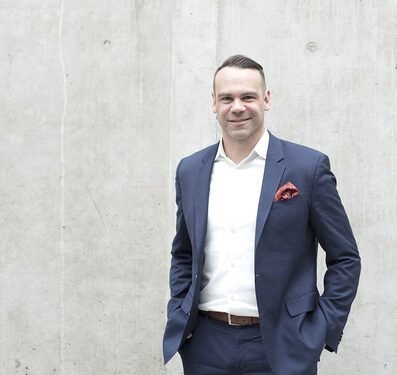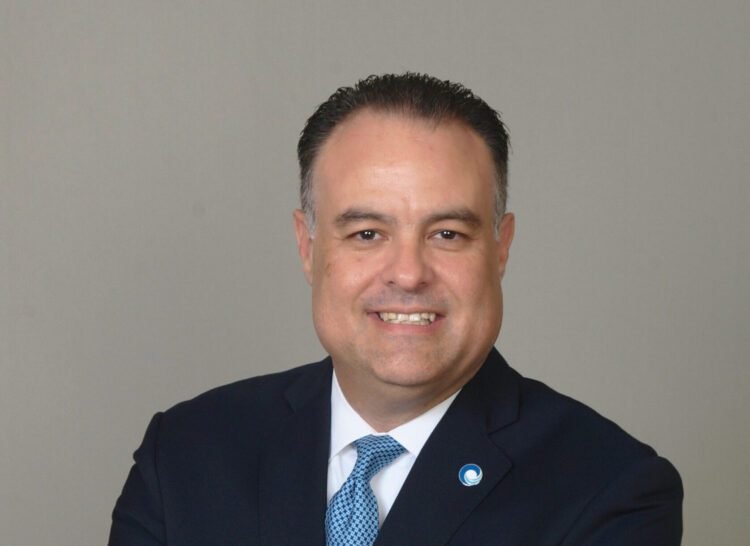“Leadership to me is a responsibility to help others. It is an opportunity to learn first, fail first, take risks for others, and to support those around you.” – Jim Taylor
Jim Taylor is the Owner/Principle at TaylorCo Consulting. He’s also a restaurateur & entrepreneur. Lover of family and the outdoors.
Before going into business for himself, Jim had a long and successful career with Cactus Club Cafe restaurants. Operating in multiple roles and several markets, Jim was able to take a lead role in both the growth and financial strategies that helped to make Cactus restaurants a household name in Canada.
Jim is the creator of Benchmark Sixty – A one-of-a-kind, premier restaurant financial optimization platform designed for restaurateurs to dramatically increase their profit margins by understanding data, implementing benchmarks, and using metrics to improve productivity. This signature platform has helped multiple restaurants start on the right foot, land on their feet, or position for strong growth moving forward. It has also been battle-tested during the challenging Covid-19 restrictions.
Born in Calgary, Alberta Jim grew up playing sports and spending time in the Rockies. Both things that he now loves to do with his family in Vancouver, BC. When not working with restaurateur clients, you can find Jim hiking, playing golf, and spending time with his wife Jen and golden retriever Leo.
His business goals are focused mostly on doing what he can to improve the overall state of the restaurant industry. Having grown up in it, and witnessing first hand the challenges it, and the people working in it face, he aspires to make it better for the next generation of restaurateurs.
Thank you so much for doing this with us! Can you tell us a story about what brought you to this specific career path?
Jim Taylor: Absolutely!
After a successful 20 year career with one of Canada’s leading restaurant organizations, I had the urge to do more. I wanted to make a bigger impact on the restaurant industry specifically in terms of helping it recover from the effects of Covid 19, and also to improve it in any way I can to make it easier for the next generation of restaurateurs.
Typically I find that people get into the restaurant business because they have specific skills related to either food and beverage or because they are great with people. Quite often it becomes a career path that they didn’t even expect to pursue! (This is definitely what happened with me.) As they often progress through their careers based on their talent, operators often eventually find themselves in charge of multi-million dollar businesses without the necessary analytical skills required to ensure that a complex business like a restaurant remains profitable.
Due to both seeing and living this exact scenario through the course of my career, I have become very passionate about helping the industry evolve in terms of how its operators learn to manage revenue and drive profitability. The “way it has always been done” just doesn’t work anymore.
There is always innovation happening in terms of food, beverage, and design in our industry, however, the industry is far behind when it comes to several business practices.
Is there a particular person who you are grateful towards who helped get you to where you are? Can you share a story?
Jim Taylor: I was very lucky to have had(and still have) a mentor in the business who believed in me and supported me from a young age. I had never intended on pursuing a career in hospitality, and only started to consider it when I started to see how he was able to be a successful business person, have time with family, treat every individual with care and attention, and still be able to push people to become their best. This is very hard to do in the restaurant business because it is a grind, it can be very stressful, it is demanding and it is basically a 24/7 job!
This motivated me to always improve, always be working to challenge the status quo and always look for ways to continue to learn. If not for him, I wouldn’t have pursued further education, moved around the country for opportunity, or even eventually started a business of my own in order to pay it forward.
Relationships are so important, especially in the hospitality business. Although it is such a huge industry it is very interconnected and you would be amazed how well connected it really is. Learning this lesson early on from him has helped me focus in my business now on the importance of building strong relationships and partnerships where both parties come out ahead.
I will never forget the time that he challenged me prior to a difficult conversation…
I was about to let an employee go, and was feeling a little bit nervous about the conversation because they had been with the company for a long time. At the time, I thought I would just sit down, tell the person they no longer worked for the company, thank them and send them on their way. It wasn’t until he challenged me that I couldn’t approach the meeting in such a way that the person being terminated would actually thank me, and shake my hand that I started to view things differently.
Let’s be honest, you won’t very often be able to accomplish that, especially when terminating someone’s employment. The lesson however was that this needed to be a filter for how we deal with people, how we approach situations and how we speak to people. This has stayed with me for years, and I will never forget it. The goal for every conversation I have now is to have the individual leave feeling as positive as possible about it. No matter what.
What are the most common mistakes you see entrepreneurs make and what would you suggest they do?
Jim Taylor: When it comes to the restaurant business, the most common mistake that entrepreneurs make is that they try to be good at everything. This is probably the number one reason why so many businesses in our industry fail within the first few years.
If you are a great chef, be a great chef and hire someone to help you manage people. If you are great with people, stick to that and bring on someone to help you with business management or design. Don’t try to do it all yourself.
There are so many details in the restaurant business, and it is so complex and demanding. I see operators all the time who are working 7 days a week trying to keep up, trying to “figure it out” and that isn’t fun for anyone.
So, be the expert that you are, and involve other experts to ensure the areas you are weaker in are looked after.
Resilience is critical in critical times like the ones we are going through now. How would you define resilience?
Jim Taylor: Resilience to me is about trying not to dwell on the challenges or hardships that we are being faced with. Although easier said than done sometimes, and I don’t want to take anything away from people who have lost their businesses or worse in the past.
When it comes to business specifically, there is often some sort of silver lining, small win, or opportunity that is right in front of us. I find that this is a common theme for me while working through the challenges of not only a newer business but also working directly with one of the hardest-hit industries over the last 18 months.
I always find that if I take the time to review and consider the small wins, connections, or positive conversations I have had, that they often lead to ideas, initiatives, or opportunities that I didn’t realize were there. I always try my best to compartmentalize the challenges separately from the opportunities in order to dedicate time to both. This to me is more what resilience is about rather than just trying to fight through things.
Resilience is one of the most important traits for an entrepreneur if you ask me.
What is most important to your organization—mission, vision or values?
Jim Taylor: The things that are the most important to my organization are inclusion, education, and leaving the industry we work in better than we found it.
I aim to build a stronger community of people who want to ensure the restaurant industry has a more sustainable future, through building a community of people who share this vision.
The mission is to help the industry evolve how it operates from a business perspective, by educating its leaders on how to find, analyze and use the data that we have had for decades without ever knowing it.
Our values are based on creating lasting relationships with like-minded people, and relieving stress from the operators by helping them understand the business side of the industry better.
The industry needs to stick together!
You are a successful business leader. Which three character traits do you think were most instrumental to your success?
Jim Taylor: I hope to be a successful business leader!
It is always a process and continued learning.
The three traits that I believe are instrumental to any success that I have ever had are…
1) I have a positive, optimistic, approach to everything by nature. I always believe there is a solution, and that with the right approach we will get through anything that is thrown our way.
2) I am a student of the industry. I love hospitality and everything that goes with it. I cook at home(or try), I study the trends, the new products, the challenges. I believe you never know too much and can always get better.
3) I love competition. I grew up as an athlete and still compete. I believe that competition makes us better, it makes us practice, and it keeps us on our toes. That being said, I want my competitors to be successful too. I am not here to put anyone out of business and believe that competition is very important.
Being a CEO of the company, do you think that your personal brand reflects your company’s values?
Jim Taylor: I believe the two are intertwined and very connected.
This business is not only my livelihood, but it also has me very closely connected with every client we work with. So, my personal brand and the company brand are almost one and the same. I also want to keep it that way as we grow, to stay very connected to our customers. How I operate personally and how I view things needs to stay in line with the organization as it grows in order to ensure we remain consistent.
The business is very aligned with my personal values so it is difficult to have it any other way.
Best Books on Leadership: Find the Best Resources to Lead Effectively
Do you think entrepreneurship is something that you’re born with or something that you can learn along the way?
Jim Taylor: I definitely think that entrepreneurship is something that you can learn, or find along the way.
I say this because had you asked me early in my career if I would ever become an entrepreneur, I would have answered with a very quick ‘No.”
Looking back now, I am confident that is because I wasn’t in a place personally where I could have been successful. I didn’t have the education, experience, confidence, or perspective that I do now. It is still a learning experience every day, which I love… the only difference between then and now is that I am more clear on what I have to offer, what my business can help people with, and where I want it to go.
Entrepreneurship is right for most people if the timing is right.
Best Universities for Entrepreneurship in the USA
How would you define “leadership”?
Jim Taylor: Leadership to me is a responsibility to help others.
It is an opportunity to learn first, fail first, take risks for others, and to support those around you.
The best leaders I have ever worked with were the ones who always had time, always had perspective, always had a lesson to share, and always provided feedback that would help me learn. My hope is that as a leader in the business that the people around me always feel supported.
What Makes a Good Team Leader? A Guide to Effective Team Leadership
What’s your favorite “business” quote and how has it affected your business decisions?
Jim Taylor: My favorite business quote is by Henry Ford.
“The only thing worse than training your people and having them leave, is not training them and having them stay.”
This is not only the approach within our organization but also with our clients and customers. This is the approach we take in order to do our part to better the restaurant industry for the next generation. There is a lack of strong education for the people running businesses in the restaurant industry.
Our aim is to improve the overall business knowledge of the industry and to create a more sustainable model for the future.
This article was originally published on ValiantCEO.
Lorem ipsum dolor sit amet, consectetur adipiscing elit. Ut elit tellus, luctus nec ullamcorper mattis, pulvinar dapibus leo.








GIPHY App Key not set. Please check settings